Fruits are crucial for plants and for humankind
The source of the concept of life
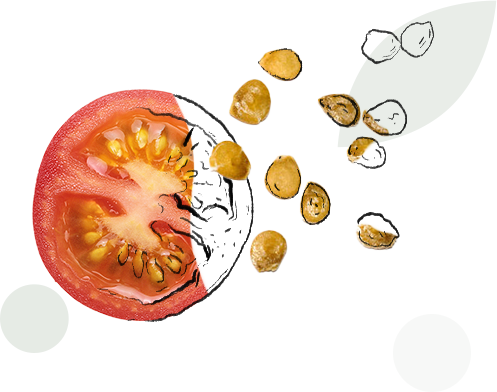
Fruits are crucial for plants and for humankind
The source of the concept of life
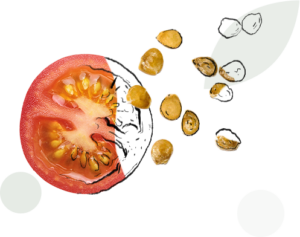
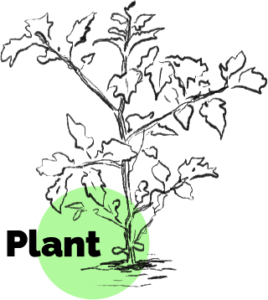

EVOfruland
The Project

01.
Evolution
We are studying functional evolution of transcription factor genes (TFs) to understand and shed light on fruit evolution
02.
Development
We are studying the hormonal signaling involved in the coordination and synchronization of the developmental steps of fruit/fruit-like development
03.
Maturation
We are studying cell wall related pathways involved in pectin maturation and cellulose deposition in fruit cells and seed coats
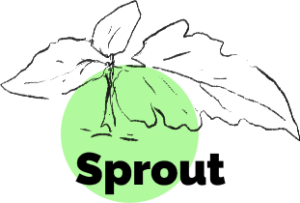

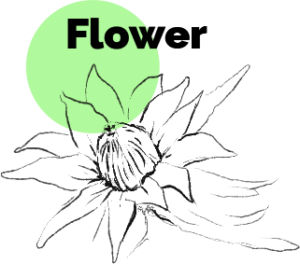


Competences, experience
Participating organisations
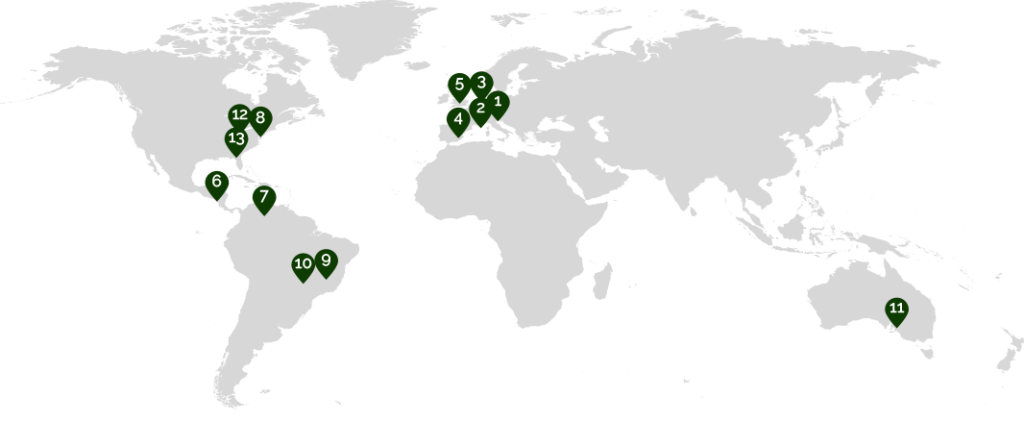
The group is part of the Department of Biology (Plant Biology Research Unit) and Prof. Barbara Baldan is the head of the research group and the former director of the Botanical Garden
of the University of Padova. The Lab is mainly focused in understanding gene network regulating the development of
reproductive structures of non-model plant, namely Gymnosperms and early diverging Angiosperm. Within EVOfruland, the
group will contribute with expertise in Next Generation sequencing data analysis, in vitro cultivation and plant cell cultures,
histology and microscopy on non-model plant systems (Gymnosperms) and dissemination and communication events in
collaboration with the New York Botanical Garden and the Brera Botanical Garden; this group will benefit of the network
because they will be trained in advanced techniques, such as in situ hybridization, immunoprecipitation and CRISPR/Cas
technique. Furthermore, the network will provide to the group a set of high level interactions and new perspectives about the
investigated research topics.
All the groups involved in the project are in the Department of Bioscience of the University of Milan, which is one of the leading centers in Italy for plant molecular biology. The labs are well equipped to perform basic and advance molecular and cellular biology experiments. There are greenhouses and growth chambers to grow plants under controlled conditions all year round. The Department has become ‘Department of excellence in 2018 and provide technical platform to perform Advance microscopy and omics research. The group will be focus on fruit-like development in Ginkgo whereas Masiero group will focus on tomato. Both groups will provide expertise in genetics, molecular biology and cell biology. Bombarely has a long and well documented expertise in genome evolution and genome wide data set bioinformatic analyze. Finally, Kater as directors of the botanical gardens will support organization of dissemination and communication events in collaboration with the New York Botanical Garden and the Padova Botanical Garden.
The Theißen lab has a long-standing interest in the evolution and development of plants and is one of the pioneers of evolutionary developmental biology (“evo-devo”) in Germany. A research focus has always been on the evolution of flower and fruit development, and on the function and phylogeny of MADS-box genes that control these processes. The research group has expertise in different kinds of gene expression analysis including in-situ hybridization and qRT-PCR, the analysis of the molecular evolution and comparative genomics of genes, especially MADS-box genes, the biophysical analysis of protein-protein and protein-DNA interactions, the generation of transgenic plants, and the targeted knock-out of genes by CRISPR/Cas9.
The Ferrandiz lab has been working for many years in elucidating the genetic networks that control carpel and fruit development in Arabidopsis and other angiosperm species (Brassicaceae, solanaceae, legumes, basal eudicots, rice…), focusing mostly on transcriptional regulation and the interaction with hormone signaling. In the last years, the focus has also extended to the study of the control of the length of the reproductive phase in monocarpic species, which depends on seed production, endogenous cues related to age and environmental inputs. Madueño lab has a major interest in genetic networks controlling inflorescence architecture and flowering, mostly using Arabidopsis and legumes as model species. The two groups will contribute within EVOfruland providing their strong expertise in functional studies of developmental genes in a range of angiosperm species (monocots and dicots), including CRISPR/Cas, VIGS, transformation, expression studies by in situ hybridization, genetic analyses, protein-DNA interactions, etc. We recently have acquired expertise in live imaging of meristems and floral structures.
The group of Gerco Angenent is part of the research Institute Wageningen Plant Research and the Wageningen University. The lab has been working for a long time on the elucidation of the role of transcription factors in flower and fruit development and the cross-talk between these transcription factors and the target genes involved in downstream developmental and metabolic pathways; the lab was one of the pioneers in establishing the ChIP-seq technology in plants and is using CRISPR/Cas already for half a decade to elucidate transcription factor functioning. Furthermore, the lab will contribute to EVOfruland with expertise in RNA-seq (including data analysis), and several protein-protein/DNA interaction assays (IP-MS, yeast n-hybrid, EMSA). A large part of the lab is focused on Arabidopsis and tomato as model systems and hence the lab has ample experience with genomics, genetics and tissue culture related to these species.
The group of Stefan de Folter is at the Advanced Genomics Unit, also called National Laboratory of Genomics for Biodiversity (UGA-LANGEBIO). The research group combines plant molecular biology, developmental biology, and functional genomics to follow an integrative approach in the study of gynoecium development, an essential aspect of plant reproduction. They focus on elucidating the function of transcription factors and hormone signaling, and integrating the knowledge in gene regulatory networks. The lab will contribute to Evofruland providing expertise in techniques to determine protein-protein/DNA interactions, RNA-seq, histology, hormone applications, live confocal imaging, and generating gene regulatory networks. Furthermore, the lab has been studying the involvement of the hormone cytokinin in gynoecium and fruit development for 10 years Most of the research is focused on Arabidopsis, but as well on tomato and canola. Plant transformations and genome editing is used to study gene functions.
The group of Dr Pabón-Mora is in the Biology Institute at the University of Antioquia (UdeA) in the city of Medellín. University of Antioquia is the second largest public university in Colombia, leader in life science teaching and research. The lab has expertise in morpho-anatomical comparative studies, in situ hybridization, Scanning EM, light microscopy, RNA-seq generation data and analysis, as well as Virus Induced Gene Silencing. The group of Dr Pabón-Mora works on developmental biology in non-model neotropical taxa. Researchers from the lab participating in the consortium will benefit in training across other techniques and disciplines especially those related with transformation of the model species Arabidopsis thaliana.
Institution: The group of Barbara Ambrose is part of the Science Division at the New York Botanical Garden. The lab is interested in the development of fruits in basal angiosperms and the fruit-like structures of gymnosperms, and the ferns as a key outgroup; as well as analyses of important transcription factors. The lab is strong in plant evolutionary genomics spanning vascular plants and with expertise in in situ hybridization. The lab also has access to the plants needed for plant evolutionary developmental biology studies and has developed a research niche in non-model organisms in vascular plants (lycophytes, ferns, gymnosperms, basal angiosperms, and basal eudicots). The lab will contribute to the EVOFruland project with plant resources and strong expertise in RNA-seq, bioinformatic, and phylogenetic analyses.
The research group develops its activities at CENA, a Specialized Institute of University of São Paulo, in two neighboring Laboratories: Plant Biotechnology Lab and Plant Development and Structure. The group focuses mainly in the development of protocols for plant tissue culture and genetic transformation in tropical and model species, aiming at studies of plant development, such as the aril development in fruits of Passiflora species, and other structures in flowers and fruits, with taxonomical and reproductive interests. Within this proposal our group will benefit from the expertise of other groups in molecular plant development, with the possibility of training through this exchanging program and establishing new methodologies in our laboratory which will allow for form detailed studies in plant development. We can contribute with our expertise in plant tissue culture and transformation and microscopical analysis to study fruit development.
The group of Marcelo Dornelas is located at the Plant Biology Department/IB/UNICAMP. The group has been interested on the role of MADS-box genes in defining floral organ morphology and size, using Arabidopsis and passionfruit as models. Current work is focused on the molecular networks controlling plant development, taking in account the influences of genomic evolution and the effects of hormones such as auxins, cytokinins and gibberellins. Within the context of this proposal, the Dornelas group will collaborate into topics included in WP2 specifically helping with data curation and interpretation; in WP3 with the characterization of spatial and temporal gene expression patterns, by means of qRT-PCR and in situ hybridization; and in WP4 performing experiments with exogenous hormonal applications and their influence in phenotype and/or differential gene expression.
Institution: The University of Adelaide (UA) has major strengths in wine and food, health sciences, biological sciences and environmental sciences. The School of Agriculture, Food and Wine based at the Waite Campus represents a world-class concentration of scientific research, education and product-conferring capability, with state-of-the-art infrastructure.The research concerning the regulation of the biosynthetic and remodelling processes of cell wall polysaccharides in higher plants was recently expanded with the establishment by Professor Bulone of Adelaide Glycomics, an Agilent Technologies Partner Laboratory unique in the Southern Hemisphere and dedicated entirely to analyses of complex carbohydrates. Professor Bulone has extensive experience in the characterization of cell walls and their polysaccharide constituents from multiple plant species, macroalgae and eukaryotic micro-organisms, complementing his renowned expertise in the functional and biochemical characterization of cell wall polysaccharide biosynthetic enzymes. Resources together with the access to state-of-the-art instruments for detailed cell wall analyses and the involvement of highly qualified senior postdoctoral researchers and technical staff for the training of host scientists from the other partners are available for all required approaches and methodologies necessary for the EVOfruland project.
The Boyce Thompson Institute (BTI) is located on the Cornell University campus. BTI researchers have access to university facilities including the Cornell University Life Sciences Core Laboratories Center which provides an array of genomics, proteomics, imaging, statistical analyses, bioinformatics, and IT shared research resources and services to BTI personnel. In addition to campus resources, BTI has a Plant Transformation Facility, and NSF-supported Imaging Facility staffed by a Ph.D-level scientist, a Computational Biology Center (BCBC) directed by Strickler, centralized lab services for handling purchases and lab products, Greenhous and Plant Growth Facility. As Director of the BCBC, Strickler, leads a team of bioinformatics analysts with extensive experience in genome sequence assembly and analysis, RNA-Seq, metabolomic analysis, population and comparative genomics, database and tool development, and programming. The team develops a variety of bioinformatics training workshops that are made freely available. She also leads research efforts that aim to use biodiversity to develop novel plant model systems to understand plant evolution and adaptation and devise effective conservation strategies.
The North Carolina Plant Sciences Initiative (NC PSI) is the world’s premier plant sciences enterprise that catalyzes interdisciplinary research to solve global challenges. The PSI has been designed to house, incentivize, and promote a team of science and to offer the state-of-the-art facilities with personalized training on equipment by experienced staff, teaching laboratories for undergraduate and graduate courses. Within the NC PSI, Ross Sozzani retains the role of Director for the Plant Improvement Platform, which research is focused on a defined list of strategic goals and objectives, as well as initiatives to meet specific near-term and long-term needs of feeding a growing population. Specific but flexible research is centred on crop protection from biotic and abiotic stresses and the fundamental role of microorganisms in sustaining soil and plants.
EVOfruland
Activities & News
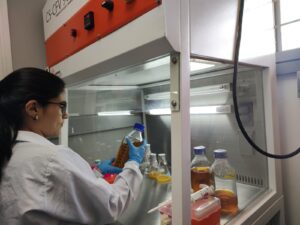
Secondment of Andrea Ramirez-Ramirez from Universidad de Antioquia (COL) to the Plant Developmental Systems (NL) – June-August 2024
Andrea Ramirez-Ramirez (Universidad de Antioquia, CO) spent 2 months at the Plant Developmental Systems department in Wageningen University
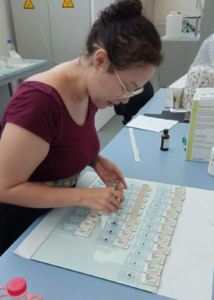
Secondment of Valentina Botero-Castaño from University of Antioquia (CO) to the University of Padova (IT) – June-July 2024
Valentina Botero-Castaño (UdeA) travelled to the group of Dr. Barbara Baldan (UniPadova) at the Botanical
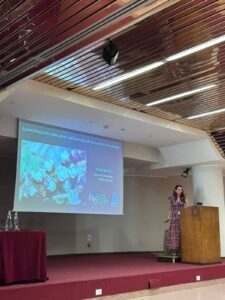
Secondment of Natalia Pabón-Mora from the University of Antioquia (COL) to the University of Padova (IT) – June 2024
Natalia Pabon Mora spend one month At Unipd with the group of Dr. Barbara Baldan.
Letters of commitment
Publications
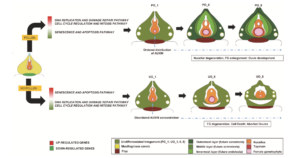
Development of pollinated and unpollinated ovules in Ginkgo biloba: unravelling the role of pollen in ovule tissue maturation
ABSTRACT In gymnosperms such as Ginkgo biloba, the arrival of pollen plays a key role in
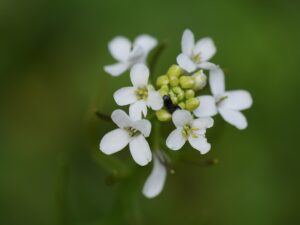
The protein–protein interaction landscape of transcription factors during gynoecium development in Arabidopsis
ABSTRACT Flowers are composed of organs whose identity is defined by the combinatorial activity of
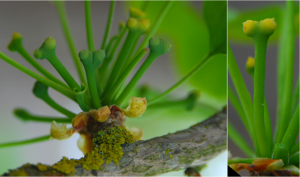
Identification of key regulatory genes involved in the sporophyte and gametophyte development in Ginkgo biloba ovules revealed by in situ expression analyses
ABSTRACT Premise In Arabidopsis thaliana, the role of the most important key genes that regulate ovule
Horizon 2020
This project has received funding from the European Union’s Horizon 2020 research and innovation programme under the Marie Skłodowska-Curie grant agreement No 101007738


This project has received funding from the European Union’s Horizon 2020 research and innovation programme under the Marie Skłodowska-Curie grant agreement No 101007738








